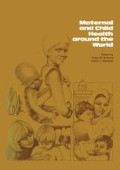Abstract
Implementing health and health-related programmes in villages has been a difficult and often a nearly impossible task. So difficult has it been that many of the manuals written for overseas assistance workers are documentaries of failed programmes, examples of what not to do. Failure in the past has generally been attributed to attempting to change local attitudes and practices without first becoming aware of the interrelated local customs and the sociocultural consequences of projected changes.
Preview
Unable to display preview. Download preview PDF.
References
Adams, R. N., (1975). Energy and structure: a theory of social power. Austin and London. University of Texas Press.
Berg, A. (1973). The crisis in infant feeding practices. In The nutrition factor: its role in national development. Washington. The Brookings Institution.
Cassel, J. (1957). Social cultural implications of food and food habits. American Journal of Public Health 47 732–740.
Demory, B. (1976). An illusion of surplus: the effect of status rivalry upon family food consumption. Unpublished PhD Dissertation, University of California, Berkeley.
Erb, Guy F., Kallab, V. (Eds). (1975). Beyond dependency: the developing world speaks out. Overseas Development Council. ( September ).
Lieban, R. W. (1974). Medical anthropology. In John J. Honigmann, Ed. Handbook of social and cultural anthropology. Chicago. Rand McNally College Publishing Company.
Logan, M. H. (1973). Humoral medicine in Guatemala and peasant acceptance of modern medicine. Human Organization 32, 385–395.
Mackenzie, M. (n.d.) The medicine alone is not enough to cure. manuscript.
Marchione, T. J. (1977). Food and nutrition in self-reliant national development: the impact on child nutrition of Jamaican government policy. Medical Anthropology 1 58–79.
Nurge, E. (1958). Etiology of illness in Guinhangdan. American Anthropologist 60, 1158–1172.
Paul, B. (1955). Health, culture, and community: case studies of public reactions to health programs. New York. Russell Sage Foundation.
Pelto, P. J.,(n.d.) Ecology, de-localisation, and social change. In Consequences of technological change in the Arctic. Muller-Wille and Pelto, eds. Edmonton: The Boreal Institute for Arctic Research. (in press)
Polgar, S. (1963). Health action in cross-cultural perspective. In Handbook of medical sociology. H. Freeman, Sol Levine, and L. Reeder, eds. Englewood Cliffs, N.J. & Prentice-Hall, Inc.
Rubel, A. J., (1964). The epidemiology of a folk illness: Susto in hispanic America. Ethnology 3 268–283.
Editor information
Editors and Affiliations
Copyright information
© 1981 H. M. Wallace and G. J. Ebrahim
About this chapter
Cite this chapter
Demory, B. (1981). Identifying and mobilising resources in the village society. In: Wallace, H.M., Ebrahim, G.J. (eds) Maternal and Child Health Around the World. Palgrave, London. https://doi.org/10.1007/978-1-349-05386-5_33
Download citation
DOI: https://doi.org/10.1007/978-1-349-05386-5_33
Publisher Name: Palgrave, London
Print ISBN: 978-1-349-05388-9
Online ISBN: 978-1-349-05386-5
eBook Packages: Palgrave Social & Cultural Studies CollectionSocial Sciences (R0)

